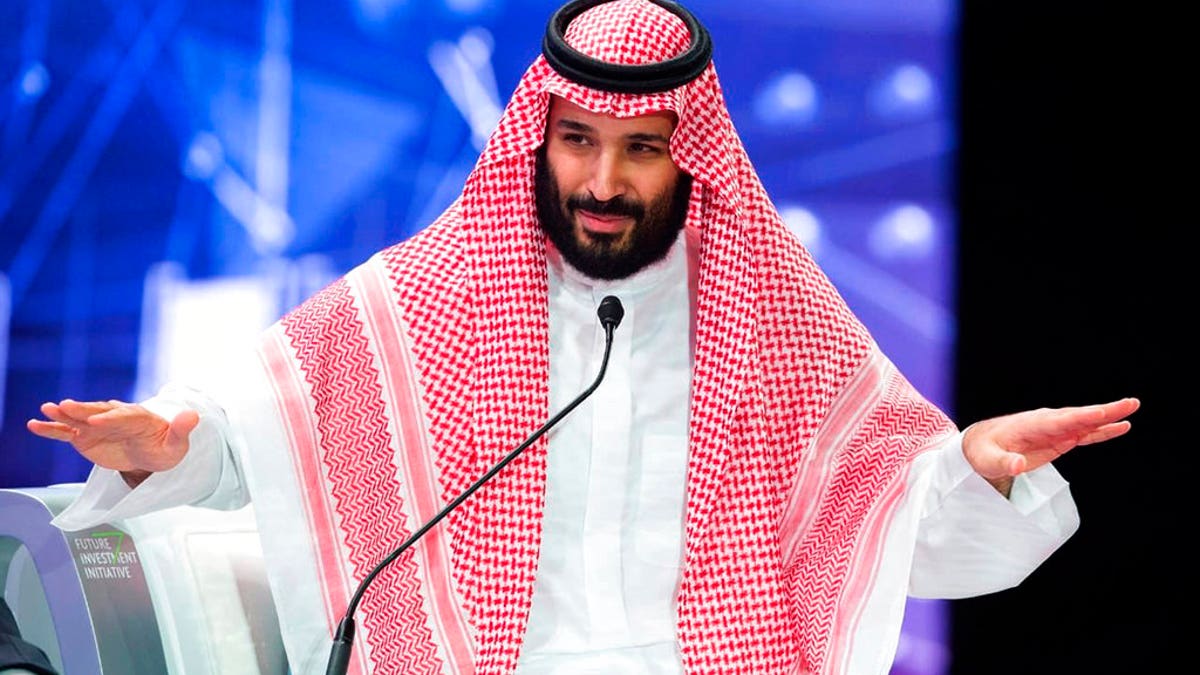
Turkey's President Recep Tayyip Erdogan delivers a speech to MPs of his ruling Justice and Development Party at the parliament in Ankara, Turkey. (AP)
Turkish President Tayyip Erdogan said he is willing to meet Saudi Crown Prince Mohammed bin Salman, nearly two months after a Saudi writer was slain in a Turkish consulate and sparking an international outcry, Reuters reported.
Turkey’s Foreign Minister Mevlut Cavusoglu confirmed to a German newspaper that the two leaders have spoken recently. The interview was published Tuesday.
TRUMP, TURKEY LEADER ERDOGAN REPORTEDLY DISCUSSED HOW TO RESPOND TO KHASHOGGI KILLING
“Yes, (Prince Mohammed) has asked Erdogan on the phone, whether they could meet in Buenos Aires,” Cavusoglu told the paper. “Erdogan’s answer was ‘Let’s see.’”
"At the moment there is no reason not to meet with the crown prince," Cavusoglu said.

FILE: Saudi Crown Prince, Mohammed bin Salman addresses the Future Investment Initiative conference, in Riyadh, Saudi Arabia. (Saudi Press Agency via AP)
Saudi Arabia has been thrust into the international spotlight after Jamal Khashoggi, a Saudi writer and dissident based in the U.S., was assassinated at the Saudi Arabian consulate in Turkey on Oct. 2 by members of the Saudi Government.
The Crown Prince's reputation has plummetted amid accusations that he ordered Khashoggi's killing, even though he has denied any involvement.
Bowing to pressure, Saudi authorities have claimed Khashoggi was killed in an operation aimed at forcibly bringing the writer back to the kingdom.
SAUDI ARABIA INDICTS 11, SEEKS DEATH PENALTY FOR 5, IN JAMAL KHASHOGGI'S MURDER
Saudi prosecutors have said the plan was masterminded by two former advisers to the crown prince and are now seeking the death penalty for five people allegedly involved in the killing.
The Crown Prince and other world leaders will converge in Buenos Aires this week for the G20 Summit where he will come face to face with Erdogan as well as President Donald Trump, who has defended U.S. ties with the kingdom despite pressure to condemn them.
Argentine authorities have reportedly considered charging Prince Mohammed with war crimes for Saudi Arabia's military intervention in Yemen, though diplomatic and other forms of immunity would make an arrest highly unlikely, The New York Times reported.
The Associated Press contributed to this report.
